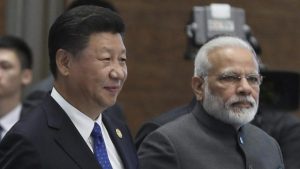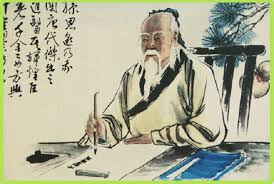Highly topical in 2018: the five principles of peaceful coexistence
It was 63 years ago, exactly on April 29th 1954, when India’s first prime minister Jawaharlal Nehru, and China’s first premier, Zhou Enlai, signed a treaty that has been since recommended as the Panchsheel Treaty. It contained a few mutual and common rules that are called the five principles of peaceful coexistence. At the time the Charter of the United Nations (link to the original version) that is supposed to containing the same principles had become effective for nine years yet. But within this period the American and French wars in Korea and Vietnam questioned the UN Charter.

Still agreeing on peaceful co-existence: China’s Xi Jinping and India’s Narendra Modi (AP photo from Hindustantimes)
So when the Chinese President Xi Jinping and his colleague Prime Minister Narendra Modi met in September 2017 on the occasion of the BRICS meeting in China’s Xiamen, remembering the Panchsheel Treaty was a rare sample of successful bilateral agreements that have never been broken or put in question.
And these are the five principles:
- Mutual respect for each other’s territorial integrity and sovereignty.
- Mutual non-aggression.
- Mutual non-interference in each other’s internal affairs.
- Equality and cooperation for mutual benefit.
- Peaceful co-existence
While other international agreements, beside the UN Charter from 1945 e.g. the Helsinki Act from 1975 or the Minsk Protocol from 2015 failed to bringing enduring peace, the five principles appear astonishing highly topical. The Basel Institute of Commons and Economics therefore started to adopt them as a base for other bilateral agreements on peace and reconciliation.
In a broadcast from May 1954 Nehru said: ‚If these principles were recognized in the mutual relations of all countries, then indeed there would hardly be any conflict and certainly no war.‘ In any case they shift the issue of peace from entirely complicated rules that cause endless violations to a couple of clear basic rules.
It was the Chinese philosopher Lao-Tzu (6th century B.C.) who discovered the paradox of law and rules long before Immanuel Kant’s (1724-1804) Categorical Imperative when he considered:
The more rules and regulations,
The more thieves and robbers.
Today’s peacemakers may being inspired by such thoughts.
Kommentare deaktiviert für Highly topical in 2018: the five principles of peaceful coexistence
admin am Oktober 30th 2017 in Allgemein






